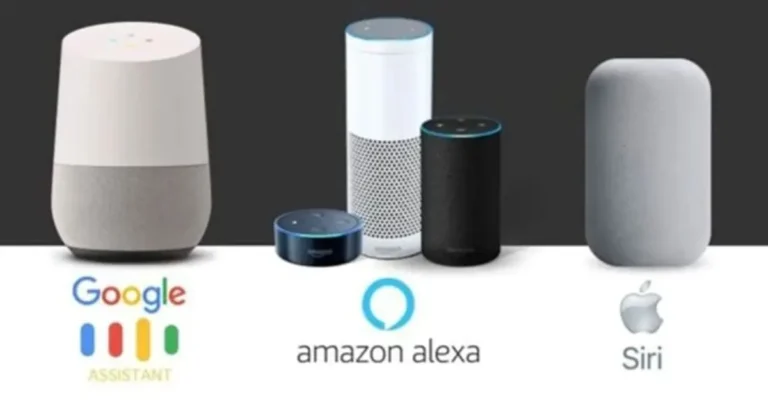Introduction
Smart home automation has revolutionized daily life, letting users control lights, locks, and thermostats with a simple voice command. But with Alexa, Google Assistant, and Siri all vying for dominance in 2025, which assistant truly delivers the best experience? This guide compares their latest features, privacy standards, and smart home integrations to help you choose the perfect fit for your connected home.
Why Voice Assistants Matter in 2025
Voice assistants are no longer just novelty gadgets—they’re central to modern smart homes. By 2025, advancements in AI, device compatibility, and privacy controls have made them indispensable for tasks like:
- Automating routines (e.g., morning/evening schedules).
- Enhancing home security (smart locks, cameras).
- Reducing energy bills (smart thermostats, plugs).
Let’s break down how Alexa, Google Assistant, and Siri stack up.
1. Alexa: The Compatibility King
Why Choose Alexa in 2025?

Amazon’s Alexa leads in smart home device support, working with over 140,000+ products. Here’s why it’s a top pick:
Key Features
- Widest Device Compatibility: Works with Philips Hue, Nest, Ring, and more.
- Advanced Routines: Automate tasks like turning off lights at bedtime.
- Alexa Guard: Monitors for break-ins or smoke alarms.
- Energy Savings: Smart scheduling for thermostats and plugs.
Best For
- Users with mixed-brand smart devices.
- Budget-friendly setups (works with affordable brands like Wyze).
2. Google Assistant: The AI Powerhouse
Why Choose Google Assistant in 2025?

Google Assistant shines with AI-driven insights and seamless integration with Google’s ecosystem (Nest, YouTube, Calendar).
Key Features
- Predictive Automation: Learns habits to adjust thermostats/lights automatically.
- Multi-Room Audio: Sync music across Google Nest speakers.
- Energy Monitoring: Tracks power usage via compatible plugs.
Best For
- Google ecosystem users (Android, Nest, Chromecast).
- Homes prioritizing AI and proactive automation.
3. Siri: Privacy-First Automation
Why Choose Siri in 2025?

Apple’s Siri prioritizes security and HomeKit integration, making it ideal for Apple loyalists.
Key Features
- On-Device Processing: 90% of voice commands stay offline for privacy.
- Matter Support: Works with non-Apple devices like Philips Hue.
- HomeKit Secure Video: Encrypted footage from cameras like Logitech Circle.
Best For
- Apple users (iPhone, HomePod, Apple TV).
- Privacy-focused households.
Head-to-Head Comparison
Alexa vs. Google Assistant vs. Siri (2025)
| Feature | Alexa | Google Assistant | Siri |
|---|---|---|---|
| Device Compatibility | 140,000+ devices | 50,000+ devices | 10,000+ (HomeKit/Matter) |
| AI & Voice Recognition | Good | Best | Average |
| Privacy | Cloud-based | Cloud-based | On-device processing |
| Ecosystem | Amazon (Ring, Blink) | Google (Nest, YouTube) | Apple (HomePod, HomeKit) |
FAQs
1. Can I use multiple assistants in one home?
Yes, but they won’t share routines. Use a hub like Samsung SmartThings for cross-platform control.
2. Which assistant is best for renters?
Alexa (supports portable devices like smart plugs).
3. Does Siri work with non-Apple devices?
Yes, via Matter—but setup is easier with HomeKit.
Conclusion
In 2025, Alexa remains ideal for device-heavy homes, Google Assistant excels in AI-driven routines, and Siri leads in privacy for Apple users. Your choice hinges on whether compatibility, intelligence, or ecosystem loyalty matters most. Stay updated as these assistants evolve—your smart home’s future is just a voice command away.



